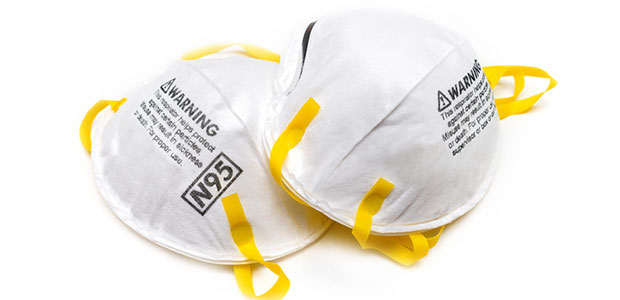
CDC Recommends Better Masks Against Omicron Variant
The agency is likely to say people who can wear N95 or KN95 masks should do so.
- By Shereen Hashem
- Jan 13, 2022
The CDC is considering updating its mask guidance to recommend that people opt for the highly protective N95 or KN95 masks worn by health-care personnel, if they can do so consistently, said an official close to the deliberations who was not authorized to speak publicly. With the highly transmissible omicron variant breaking records of infections and hospitalizations, experts have repeatedly urged the Biden administration to recommend the better-quality masks rather than cloth coverings to protect against an airborne virus.
“The agency is currently actively looking to update its recommendations for KN95 and N95 in light of omicron,” the official said.* “We know these masks provide better filtration.”
When the CDC issued its initial mask guidance in 2020, health officials did not urge the use of the more protective face coverings out of concern that health workers might be unable to get them. However, health officials said there are no longer serious shortages of N95 masks. The updated guidance is expected to say that the best mask is the one that is worn consistently and correctly. N95 masks, which were predominantly used in health-care and industrial settings before the pandemic, are supposed to be individually fitted and are sometimes hard to wear all day, physicians and other health-care personnel have said. The CDC guidance is expected to say that if people can “tolerate wearing a KN95 or N95 mask all day, you should.”
The agency has worked on the guidance for several weeks, but “completion hinged on the government’s analysis of the mask supply chain,” which was recently completed, according to the official close to the deliberations.
As of December 29, the U.S. had 747 million N95 masks in the national stockpile, 59 times pre-pandemic levels, according to prepared testimony from Dawn O’Connell, assistant secretary for preparedness and response.
Senator Bernie Sanders said in a tweet Tuesday that he planned to introduce legislation Wednesday "for N95 masks to be sent to every household in the country. This will save lives and reduce health care costs.”
CDC Director Rochelle Walensky has previously declined to officially endorse Americans wearing N95s regularly, rather than a typical fabric mask.
“If people want extra layers of protection, the KN95 or N95s do offer that,” Walensky said* in an interview. “But what I also want to really emphasize is that you need to be able to keep them on for when you’re in those settings. Those KN95 and N95s are often not as comfortable.”
The agency’s current guidance says a mask should fit snugly, have two layers of breathable fabric and have a wire bridge around the nose. The guidance says N95 masks should be prioritized for health-care workers, an idea several public health experts panned.
“That note of trying to save N95s for health-care workers is just grossly out of date,” said Michael Osterholm, who leads the University of Minnesota’s Center for Infectious Disease Research and Policy and advised President Biden’s transition team on the coronavirus response.
N95 masks are approved by NIOSH and are designed to filter up to 95 percent of particles, according to the CDC. KN95s are supposed to meet a comparable Chinese standard, but there is no Chinese regulatory agency ensuring that, said Anne Miller, executive director of Project N95, a nonprofit organization that distributes free N95s and children’s masks in the United States. The CDC has warned that about 60 percent of imported KN95s in the United States are counterfeit. However, there are U.S. firms that make KN95s that are of high quality, Miller said.
“Omicron is very transmissible through shared air,” said Julia Raifman, an assistant professor at Boston University School of Public Health. “Mask policies that ensure people with covid and people around them are wearing high-quality masks do the most to reduce covid spread.”
The government should not only recommend high-quality masks, she added, but also make them available and required in workplaces. Following breakthrough cases among vaccinated staff and lawmakers in the U.S. Capitol, congressional staff were told KN95 masks would be provided to House staff. Previously, they were allotted surgical masks. Some state and local officials have also recently encouraged people to upgrade their masks. In Milwaukee, the health department over the weekend started handing out a half-million free N95 masks at testing and vaccination sites and public libraries, according to news reports. In Connecticut, the state announced it would distribute six million free N95s. In suburban Maryland, Montgomery County Public Schools is providing KN95 masks to teachers, staff and students.
Miller said there are many U.S. manufacturers of N95 masks and an ample supply. Project N95 sells the masks at low prices and has also distributed more than 2.5 million N95s and quality children’s masks to people in need. It is working to distribute another 10 million free during winter.